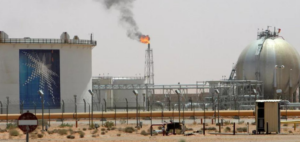Russia has raked in 158 billion euros in revenue from fossil fuel exports in six months of war, taking advantage of high prices, according to a report by an independent research center released Tuesday, which calls for more effective sanctions.
“Soaring fossil fuel prices mean that Russia’s current revenues are well above those of previous years despite reductions in export volumes,” the report by the Finland-based Centre for research on energy and clean Air (CREA) points out.
Gas prices have risen to historic levels in Europe, while oil prices rose sharply at the beginning of the war before declining more recently.
“It is estimated that fossil fuel exports contributed 43 billion euros to the Russian federal budget, helping to finance war crimes in Ukraine,” the authors calculated.
These numbers were estimated for the first six months of the war following Russia’s invasion of Ukraine, from February 24 to August 24.
Over this period, CREA estimates that the largest importer of Russian fossil fuels was the European Union (for 85.1 billion euros), followed by China and Turkey.
The EU has decided on a progressive embargo on its imports of oil and petroleum products. It has also already stopped buying coal, but Russian gas, on which it is heavily dependent, is not affected for the time being.
However, the research center believes that the EU coal embargo – implemented on August 10 – has paid off, with Russian exports since falling to their lowest level since the invasion of Ukraine. “Russia has failed to find other buyers,” the report’s authors write.
However, CREA believes that “stronger” rules must be put in place to prevent Russian oil from entering markets where it is supposed to be banned. Western sanctions are now too easily circumvented, he said.
“The EU must prohibit the use of European ships and ports for the transport of Russian oil to third countries,” he said. The United Kingdom is also called upon to ban the participation of its insurance sector in such international transport.
For their part, the G7 countries decided on Friday to put an “urgent” cap on the price of Russian oil, a mechanism that is complex to put in place and is intended to deal a further blow to Moscow’s energy windfall.





















